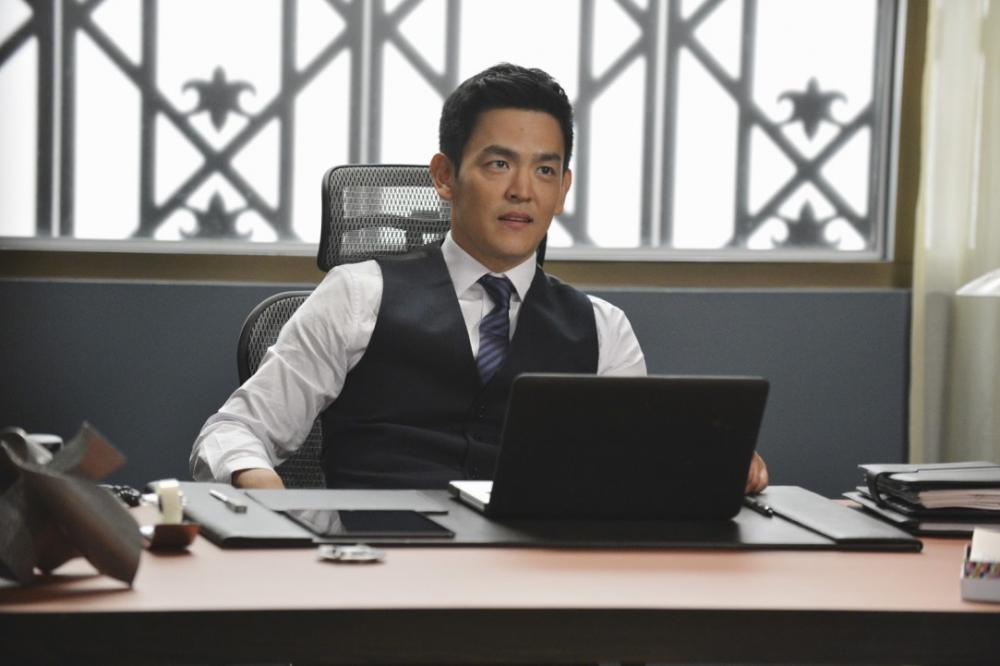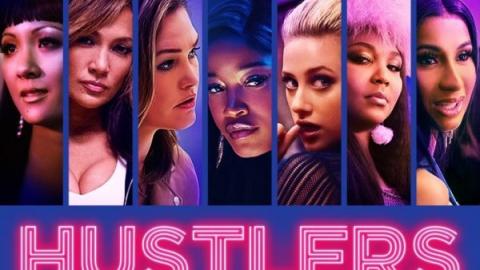The Ongoing Saga of Asians in Hollywood, An Op-Ed on the Lack of Silver Screen Asian Representation
Share with friends

I’ve heard enough complaining recently...
I’ve heard enough complaining recently. This is not going to be a piece on the stereotypes or representations propagated by film over the generations. Instead I want to put that aside for a moment and examine something that feels very pertinent to the here and now. As an Asian-American and someone who is not apt to spout off social commentary, I still carry an unspoken question in the back of my mind. It hardly keeps me up at night, but it nevertheless interests me. It goes something like this.
Will Asians ever make the jump to the big screen? Strides are being made in television as more and more Asian actors pop up all over the media. It’s going to happen at some point in movies, so the better question is, when will they finally make the big time, and why hasn’t it happened already? In order to get at this deep-seated question, a little background seems necessary. The best place to start is television, a media outlet that has seen radical change as far as asians are concerned.
During the 1950s there were a few examples on TV, notably the cook Hop Sing (Victor Seung Yung) in Bonanza. Then Gene Roddenberry’s landmark Star Trek brought our attention to Mr. Sulu (George Takei), while Kato (Bruce Lee) showed up in The Green Hornet, and Hawaii Five-O was populated with many Asian actors including Kam Fong and Zulu. What should be most noticeable about all these roles, no matter how prominent, is that they were all subordinate -- all supporting roles. At that time it was a major step forward for Asian-American actors, but they were far from being cast as stars. In the ‘70s you had Pat Morita in Happy Days and Jack Soo in Barney Miller. Furthermore, actors such as James Hong, Keye Luke, Mako, and Philip Ahn populated shows like M*A*S*H and Hawaii Five-O as the “go to” Asian actors in the industry.
Then there came Mr. T and Tina. By name alone it means very little. In fact, it was cancelled after airing only 6 episodes in 1976 on ABC. But it holds significance for being the first television program to center around an Asian star: Pat Morita. After that came An All-American Family starring Margaret Cho and that too was cancelled soon after its inception.
Fast-forward several decades to the 21st century and we have seen a tide of prominent roles for Asian stars all across the television spectrum. Sandro Oh in Grey’s Anatomy. Daniel Dae Kim in Lost and the Hawaii Five-0 Reboot. Masi Oka in Heroes and Hawaii Five-0. Maggie Q in Nikita. Ken Jeong in Community. C.S. Lee in Dexter. Lucy Liu in Elementary. Steven Yeun in The Walking Dead and so on. The list is far from exhaustive, but you get the idea.
Much like Mr. T and Tina, there were a trio of shows that looked to carry the portrayals of Asian-Americans even further: Dr. Ken, #Selfie, and Fresh Off the Boat. Dr. Ken opened this fall and only time will tell if it can weather the ratings storm riding on the laurels of Ken Jeong. #Selfie, a John Cho and Karen Gillan vehicle faced a similar fate to its predecessors last Fall, receiving cancellation before even a full season. Fresh Off The Boat, starring Randall Park, entered uncharted territory after being picked up for its second season. It’s far from a revolutionary show, but its moderate success is revolutionary in itself. Behind this lies the inference that just maybe Asians, played by Asian-American actors, can command an audience in modern day America. That’s a big deal and it could prove to be a major catalyst for future advances.

However, there’s still a major leap to be made between the big and small screens, because there is greater financial risk in movies. True, there is Bruce Lee, who starred in numerous kung fu and martial arts films before his untimely death. In fact, he’s essentially the hallmark that other Asian stars are measured by, because no one has been able to surpass his appeal yet. Then, you had a few actors like James Shigeta and Nancy Kwan who commanded a few starring roles earlier on, but in general Asians are always relegated to supporting film characters.
That is not to say Asians have not been successful behind the camera. If you go back to James Wong Howe, he was one of the most notable Asians in Hollywood during the 1930s. Also, Howe is arguably one of the greatest cinematographers ever, working on everything from The Thin Man to Sweet Smell of Success. In the 1990s, John Woo and Ang Lee, especially, managed to make the transition to Hollywood at different point in their careers. Lee has continued to churn out popular films like Sense and Sensibility, Brokeback Mountain, Life of Pi, after initial success in Taiwan.
Even more recently Japanese-American Cary Joji Fukunaga has found success directing for both film and television, most notably for the first season of the wildly popular True Detective. His new film Beasts of No Nation, starring Idris Elba, is already getting a lot of positive buzz in the media.
Furthermore, some companies like Wong Fu Productions are picking up some of the slack with their more humble efforts on YouTube and at film festivals, acquiring a large following in the Asian-American community. Although their work feature Asians, it’s far from exclusionary, painting the world with a diverse brush. So why is this philosophy seemingly not the norm? We can only assume that the unspoken consensus with larger studios is the following: It’s safer to have Asians in smaller roles. You get the diversity without the financial risks. Honestly, not many executives would want to gamble their money on Asian actors, especially if they don’t have talent or are not lucrative. Can you blame them?
However, at some point, hopefully the issue in the media discourse will go beyond click baity anger points about the offensiveness of portrayals and will evolve to, when and how Asians will become box office in America and across the globe. After all, if the TV airwaves are any indication, Asians are proving that they can act and audiences want to follow their stories. It would be nice to finally get beyond the issues of representation in favor of more pressing matters. It only takes one film and one production company taking a chance on one actor. True, there are a lot of things that must come together, but this is something that I will be keeping an eye on. Will we see a John Cho, a Ken Jeong, or maybe someone else making the jump to the big screen as a major star and stay there?
After all, it should hardly be a matter of race. If there are actors out there, who could make it in the movies, it seems like they should be given a chance. Fears or concerns about their ethnicity should not be an issue anymore. What matters is if they have something new to offer to the cinematic landscape. Many folks say television is going through a renaissance now. It’s not simply because of a proliferation of more Asians, but diversity certainly doesn’t hurt. It brings to light different stories with different sorts of characters.
It will be interesting to see if someone can make that leap, bringing new stories to the film-going public. Let’s face it, the age of the sequel and unoriginality is getting a tad old. We need new perspectives and some of those perspectives could come from Asian-American actors just as they could come from other actors. At some point we will reach an age where Asian film stars will feel commonplace, not like the exception to the rule. We’re not quite there yet, but we’re getting closer.




